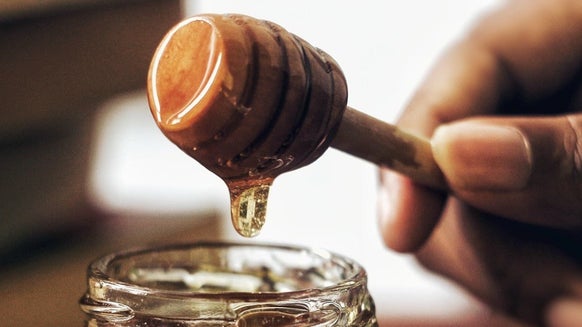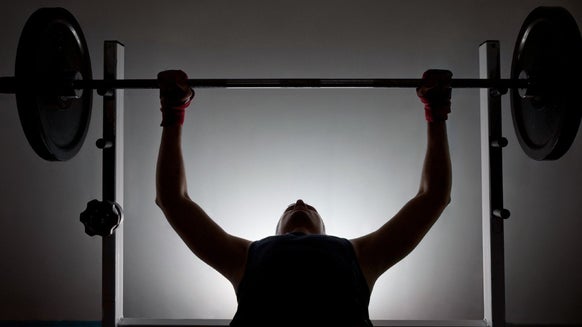- Phillips, M. (2014). A brief review of critical processes in exercise-induced muscular hypertrophy. Sports Medicine. 44(1). 71-77.
- Madzima, T., Melanson, J., Black, J., & Nepocatych, S. (2018). Pre-Sleep Consumption of Casein and Whey Protein: Effects on Morning Metabolism and Resistance Exercise Performance in Active Women. Nutrients, 10(9), 1273. doi: 10.3390/nu10091273
- Trommelen, J., & van Loon, L. (2016). Pre-Sleep Protein Ingestion to Improve the Skeletal Muscle Adaptive Response to Exercise Training. Nutrients, 8(12), 763. doi: 10.3390/nu8120763
- Devries, M., & Phillips, S. (2015). Supplemental Protein in Support of Muscle Mass and Health: Advantage Whey. Journal Of Food Science, 80(S1), A8-A15. doi: 10.1111/1750-3841.12802
- Ribeiro, A., Nunes, J., Schoenfeld, B., Aguiar, A., & Cyrino, E. (2019). Effects of Different Dietary Energy Intake Following Resistance Training on Muscle Mass and Body Fat in Bodybuilders: A Pilot Study. Journal Of Human Kinetics, 70(1), 125-134. doi: 10.2478/hukin-2019-0038.
- Dangin, M., Boirie, Y., Garcia-Rodenas, C., Gachon, P., Fauquant, J., Callier, P., … & Beaufrère, B. (2001). The digestion rate of protein is an independent regulating factor of postprandial protein retention. American Journal of Physiology-Endocrinology And Metabolism, 280(2), E340-E348.
- Tipton, K. D., Elliott, T. A., Cree, M. G., Wolf, S. E., Sanford, A. P., & Wolfe, R. R. (2004). Ingestion of casein and whey proteins result in muscle anabolism after resistance exercise. Medicine & Science in Sports & Exercise, 36(12), 2073-2081.
- Jäger, R., Kerksick, C. M., Campbell, B. I., Cribb, P. J., Wells, S. D., Skwiat, T. M., … & Smith-Ryan, A. E. (2017). International society of sports nutrition position stand: protein and exercise. Journal of the International Society of Sports Nutrition, 14(1), 1-25.
Casein Vs. Whey Protein | Wo liegt der Unterschied?

Du möchtest mehr aus deiner Trainings- und Regenerationszeit herausholen?
Viele Menschen suchen nach praktischen Proteinquellen, um bessere Fortschritte zu erzielen. Die Ergänzung der Ernährung mit Protein kann eine gute Möglichkeit sein, um die gewünschten Resultate zu erzielen. Die Frage ist nur, welches Protein sich besser für dich zum Verzehr eignet, damit du deine Ziele erreichst – Whey oder Casein?
Zwei der beliebtesten Proteine, die zur Auswahl zur Verfügung stehen, sind Whey und Casein. Bei beiden handelt es sich um hochwertige, vollständige Proteine, die reich an verzweigtkettigen Aminosäuren (BCAAs) sind – was sie zu einem großartigen Werkzeug für Muskelwachstum und -reparatur macht (1).
- Was ist Whey?
- Was ist Casein?
- Worin besteht der Unterschied zwischen Casein und Whey?
- Wann sollten Casein und Whey eingenommen werden?
- Was sind die Vorteile von Casein?
- Casein Lebensmittel-Liste
- Wie und wann sollte ich Casein einnehmen?
- Hat Casein eine Nebenwirkung?
- Casein Rezepte
Was ist Whey?
Whey ist eine hochwertige Proteinquelle, die in der Kuhmilch vorkommt und primär in drei verschiedenen Formen verarbeitet wird:
Diese Varianten unterscheiden sich hauptsächlich im Fett- und Kohlenhydratgehalt. Das Konzentrat hat tendenziell etwas weniger Protein und mehr Fette und Kohlenhydrate, während Isolat und Hydrolysat stärker verarbeitet werden, um einen höheren Proteingehalt und einen geringeren Gehalt an Kohlenhydraten und Fett zu erzielen.
Whey hat einen viel höheren Leucin-Gehalt als Casein-Protein. Leucin ist eine der vorteilhaftesten verzweigtkettigen Aminosäuren, die für das Muskelwachstum und die Erholung benötigt werden. Folglich kann die Einnahme von Whey nach dem Training dazu beitragen, einen übermäßigen Muskelabbau zu verhindern und die Muskelsynthese zu fördern (1).
Whey Protein liegt häufig in Pulverform vor und ist in viel mehr Geschmacksrichtungen erhältlich, als man es sich jemals vorstellen könnte, wie z.B. Toffee Pudding und gesalzenes Karamell. Es ist ein vielseitig einsetzbares Supplement, welches sowohl mit Wasser, als auch mit Milch oder als Zusatz in verschiedenen Mahlzeiten, z.B. beim Backen oder in Porridges, verwendet werden kann.
Was ist Casein?
Casein Protein stammt auch aus der Kuhmilch und enthält alle essentiellen Aminosäuren. Es wird langsamer verdaut als Whey, was zu einer langsameren, längeren Freisetzung von Aminosäuren führt. Dies macht es zu einem sehr vorteilhaften Supplement, welches man vor allem während längerer Fastenzeiten oder vor dem Schlafengehen einnehmen sollte (1)(2)(3)(4)(5).
Casein ist ebenfalls weitläufig erhältlich und kann meist als Pulver, für Shakes, erworben werden, die meist mit Milch oder Wasser angerührt werden. Zudem ist es ein sehr guter Zusatz zu griechischem Joghurt oder Magerquark – die beide ebenfalls sehr gute Casein-Quellen sind.
Worin besteht der Unterschied zwischen Casein und Whey?
Casein und Whey sind beides Proteine, die in der Milch vorkommen. Casein macht tatsächlich 80% des Proteins in der Milch aus, während auf Whey die restlichen 20% entfallen. Beide sind vollständige Proteine, d.h. sie enthalten alle essentiellen Aminosäuren, die der Körper nicht selbst herstellen kann.
Der Hauptunterschied zwischen Whey und Casein ist die Verdauungsgeschwindigkeit - Casein braucht länger, ehe es vollständig verdaut ist. Es hat eine langsame Absorptionsrate im Darm, was bedeutet, dass es deine Zellen langsam - und über einen langen Zeitraum - mit kleinen Mengen an Aminosäuren versorgt.
Indem du beide Proteine miteinander zu unterschiedlichen Tageszeiten kombinierst, kannst du Muskelaufbau fördern und Muskelabbau verhindern.

Wann sollten Casein und Whey eingenommen werden?
Um ein optimales Muskelwachstum und eine optimale Regeneration zu erreichen, solltest du beide Proteinarten miteinander kombinieren und zu verschiedenen Tageszeiten einnehmen. Eine Supplementation mit Whey Protein vor oder während des Trainings hilft, aufgrund der beschleunigten Verdauungsrate, deine Muskeln schnell mit wertvollen Bausteinen zu versorgen.
Wenn du andererseits Muskelabbau während längerer Fastenperioden - insbesondere über Nacht - verhindern möchtest, dann ist Casein dein bester Freund. Eine Supplementation mit Casein kann auch dazu beitragen, den Hunger zu minimieren, da das Protein eine starke Sättigungswirkung hat, was zu einer verringerten Nahrungsaufnahme führen und einem Gewichtsverlust beitragen kann.
So wurde beispielsweise in einer Studie festgestellt, dass Whey Protein die Proteinsynthese um fast zwei Drittel erhöht, jedoch keine Auswirkungen auf den Abbau von Muskelprotein hat. Andererseits verringerte Casein den Proteinabbau um ein Drittel, zeigte jedoch keinen Effekt auf die Proteinsynthese (6). Dies kann ein sehr guter Grund sein, um beides in die tägliche Routine, zum Aufbau und Erhalt von Muskulatur, einzusetzen.
Darüber hinaus konnten die Forscher in einer anderen Untersuchung - trotz unterschiedlicher Muster der Aminosäure-Reaktion des Blutes - keinen Unterschied in der Muskelproteinsynthese feststellen (7). Dies führt zu der Schlussfolgerung, dass es insgesamt darauf ankommt, sicherzustellen, dass du genügend Protein über deine Ernährung aufnimmst.
Zu den besten, mageren Proteinquellen gehören unter anderem Huhn, Pute, Fisch, fleischlose Alternativen, Milchprodukte und Hülsenfrüchte.
Was sind die Vorteile von Casein?
1. Wird langsam verdaut
Die langsame Verdauung des Casein Proteins im Körper ist der primäre Grund, wieso es eine so vorteilhafte Ergänzung zu deiner Ernährung ist. Es bietet all die zahlreichen Vorteile des Proteins, aber wirkt über eine längere Periode, sogar Stunden nach der Einnahme.
Du kannst es dir so vorstellen, wie einen langsameren, aber dafür dauerhafteren Zustrom an wertvollen Aminosäuren, welche das Baumaterial für die Muskulatur bilden.
2. Muskelaufbau – Kraft & Regeneration
Die Wirkung von Casein wirkt sich nicht nur positiv auf die Muskelkraft, sondern auch auf die Regeneration aus. Und da wir wissen, dass unsere Muskeln bis zu 24 Stunden von einer Extra-Portion Protein nach dem Training profitieren, stellt Casein eine perfekte Wahl dar, um die Muskeln mit wichtigem Baumaterial zu versorgen, selbst wenn die letzte Mahlzeit länger her ist (8).
Intensives Training verursacht Mikrotraumata (kleine Risse) in der Muskulatur und Protein kann dabei helfen, diese Beschädigungen zu reparieren und die Muskulatur wieder stärker aufzubauen, als vorher. Die spezifischen Aminosäuren, die wir in Casein finden – dazu gehören u.a. auch die verzweigtkettigen Aminosäuren (BCAAs) – sind exzellent dafür geeignet Muskelkater zu reduzieren und die Erholung anzukurbeln.
3. Fettabbau
Casein ist eine kaloriendichte Quelle für Protein. Es liefert nur sehr wenig Fett oder Kohlenhydrate, so dass es als ein sehr reines Protein angesehen wird. Protein zögert den Verdauungsprozess hinaus, so dass du dich länger satt fühlst.
Es konnte gezeigt werden, dass Protein einerseits die Sättigung fördert und andererseits die Kalorienaufnahme reduziert, was bei Fettabbau mit gleichzeitigem Muskelerhalt helfen kann. Je größer dein Muskelmasseanteil ist, desto flotter läuft auch dein Metabolismus – und dies hilft dir beim Verbrennen größerer Mengen an Kalorien und Körperfett.
4. Knochen- & Zahngesundheit
Da Casein Protein aus Milch hergestellt wird, enthält es auch Kalzium und Phosphor – zwei essenzielle Mineralstoffe, die bei der Knochen- und Zahngesundheit eine wichtige Rolle spielen.
Unsere Knochen und Zähne sind von Kalzium abhängig, um widerstandsfähig zu bleiben. Dies gilt insbesondere mit zunehmendem Alter. Und indem du zu Casein greifst, kommst du in den Genuss der positiven Wirkung von Milchprodukten (und das ganz ohne künstlich hinzugefügten Zucker).
5. Proteinquelle für die Nacht
Da die meisten von uns nicht mitten in der Nacht zum Essen aufstehen, um die Muskeln mit Energie und Baustoffen zu versorgen, bietet Casein einen einzigartigen Weg, um die Muskeln zu versorgen, während wir schlafen.
Während Whey Protein Supplemente eine großartige Option nach dem Workout darstellen, weil sie schnell resorbiert werden, liefert uns die langsame Aufnahme des Caseins einen entsprechenden Vorteil, wenn es um eine längere Protein-Versorgung (z.B. in der Nacht, während dir schlafen), geht.

Casein Lebensmittel-Liste
Milch besteht zu 80% aus Casein, daher sind Milchprodukte auch von Natur aus reich an Casein. Wenn du Milch als Casein-Quelle nutzen möchtest, solltest du dich für die fettarme und geschmacksneutrale Variante entscheiden, um zusätzliche Kohlenhydrate und Fette zu vermeiden.
Butter und Käse sind ebenfalls gute Casein-Quellen, allerdings enthalten sie auch viele Kalorien aus Fetten, daher solltest du beides nur in moderaten Mengen essen (ja, wir wissen, dass ist gar nicht so einfach).
Joghurt und Puddings werden ebenfalls mit Milch hergestellt, die von Natur aus reich an Casein ist. Und du kannst sogar Casein-Pulver nutzen, um ein paar köstliche Desserts zu zaubern.
Hüttenkäse bzw. körniger Frischkäse ist ebenfalls eine exzellente Casein-Quelle, sofern du zur fettarmen bzw. fettfreien Version greifst. Beides schmeckt großartig auf Toast oder zusammen mit Obst – und man munkelt sogar, dass manche Leute den Hütten- und Frischkäse sogar direkt aus dem Behälter löffeln.

Wie und wann sollte ich Casein einnehmen?
Casein kann zu jeder Tages- und Nachtzeit mit und ohne zusätzliche Lebensmittel zugeführt werden. Wenn du den Nutzen, den du aus Casein in der Ernährung ziehst, maximieren möchtest, dann solltest du es am besten vor dem Schlafengehen einnehmen oder als Überbrückung zwischen zwei weit(er) auseinanderliegenden Mahlzeiten nutzen, um die Muskeln mit Baustoffen zu versorgen, wenn du gerade nichts isst.
Es spricht auch absolut nichts dagegen, wenn du das Casein aus Bequemlichkeit in deinen Post-Workout Shake gibst. Deine Muskeln werden von der langsameren Aufnahme profitieren, ganz gleich, zu welcher Zeit du es konsumierst.

Hat Casein eine Nebenwirkung?
Da Casein das primäre Protein ist, welches sich in der Milch befindet, sollten Menschen, die allergisch oder sensibel auf Milch/Casein reagieren entsprechende Supplemente natürlich vermeiden.
Größere Mengen können zu Magen-Darm-Beschwerden oder Verdauungsstörungen führen, doch allgemein betrachtet ist das Risiko für Nebenwirkungen für Menschen, die problemlos Milchprodukte verzehren können, sehr gering.
Casein Rezepte
Casein Cookie Dough
Zutaten
1 Messlöffel Slow-Release Casein 15g naturbelassene Erdnussbutter (crunchy) - 20g Kakao-Nibs
- 100ml Milch
Zubereitung
- Mische alle Zutaten per Hand oder in einer Küchenmaschine bzw. einem Mixer zu einer teigartigen Konsistenz (solltest du eine Küchenmaschine oder einen Mixer verwenden, dann solltest du die Kakao-Nibs erst am Ende dazugeben, nachdem du den „Teig“ herausgeholt hast, um sicherzustellen, dass die Stückchen noch ganz sind)
- Genieße den Casein Cookie Dough unmittelbar oder lagere ihn so lange im Kühlschrank, bis es dich danach gelüstet.

Casein Shake vor dem Schlafengehen
Zutaten
- 100g Banane
1 Messlöffel Slow Release Casein - 350g Joghurt
- Eiswürfel
Zubereitung
- Mische alle Zutaten in einem Mixer zusammen und mixe den Inhalt so lange, bis du einen klumpenfreien Shake herausbekommst.
- Gieße den Shake in ein hohes Glas und genieße ihn.

Take Home Message
Beide Proteine, Whey und Casein, bieten viele Vorteile, so dass sich eine Nahrungsergänzung damit lohnt, wenn Muskelaufbau und -reparatur im Vordergrund stehen. Der Hauptunterschied zwischen den beiden Proteinen besteht darin, dass Casein länger verdaut und absorbiert wird, als Whey.
Whey Protein wird vor allem jenen Trainierenden empfohlen, die Muskelaufbau nach einem Workout maximieren möchten, weil es schnell verdaut und absorbiert wird. Wenn du also Muskelwachstum boosten und gleichzeitig Proteinabbau während längerer Fastenperioden reduzieren möchtest, ist Casein besser dazu geeignet.

Ähnliche Beiträge

Essen vor dem Schlafengehen | Welche Lebensmittel sind gut und welche schlecht?






